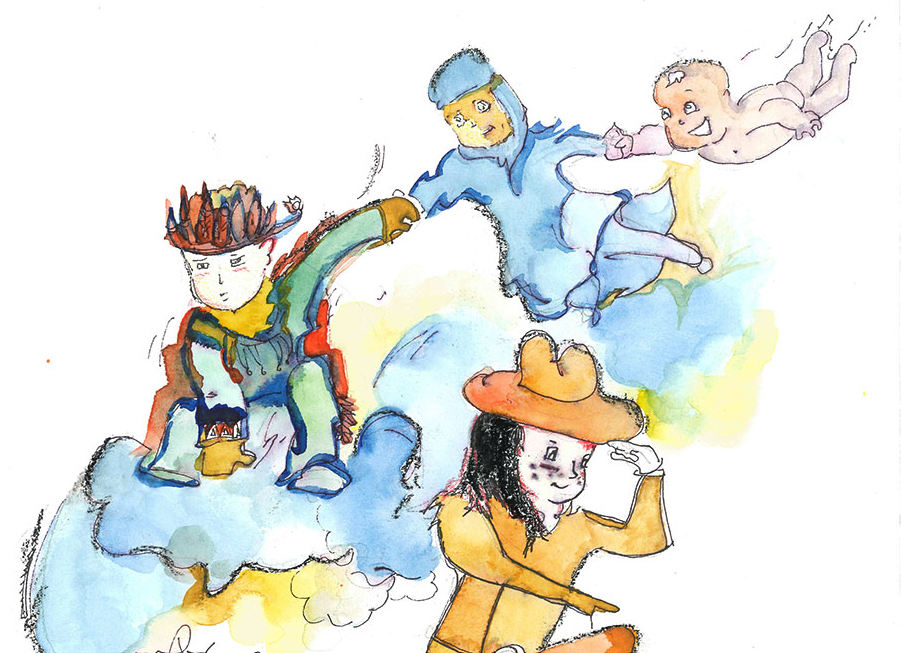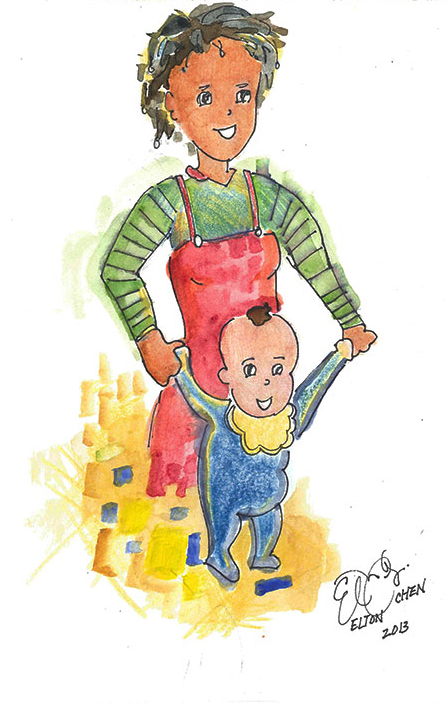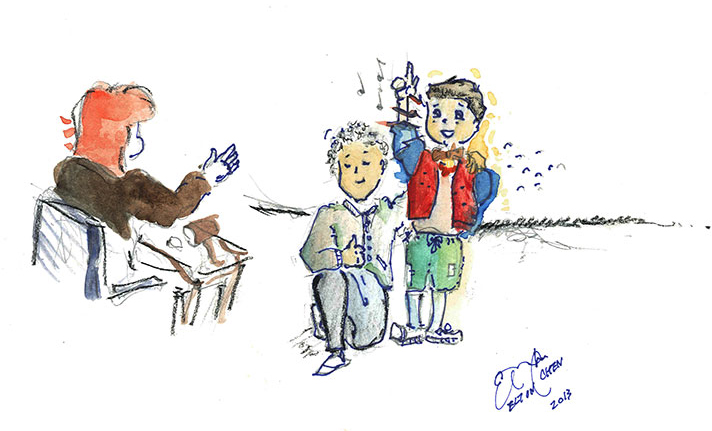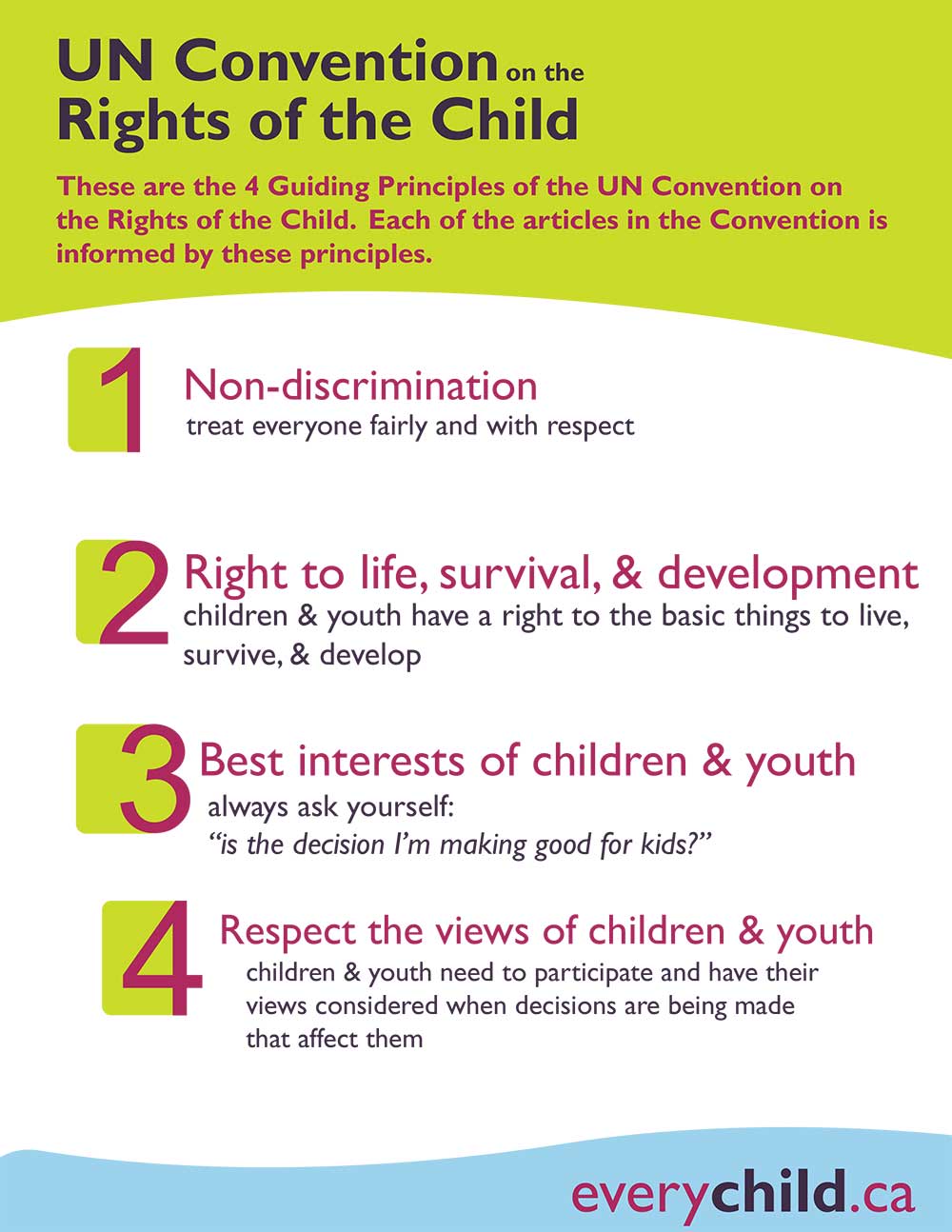Where do my rights come from?
The rights of children are written in the laws of the country you live in as well as in European and international law.
A law is a group of rules which regulates the actions of an individual or more people, such as the members of a community or country. This includes children. If people do something against the law, they have to face the consequences of their actions; in the most serious cases they have to go to prison.
What is an international law?
It is a group of rules which a group of countries have agreed to follow. International law also regulates children’s rights.
What are international treaties?
An international treaty is an agreement under international law made by countries and/or international organisations. Under the treaty, everyone agreees to do something in a certain situation. For example, they promise to do all they can to protect specific rights of children such as the right to have food and water, to go to school, etc.
What is the European Union?
The European Union (or EU) is an organisation of 28 European countries. Each country has a different history, geography, language and culture. Together the countries make the EU which decides certain matters for all countries. This includes human rights and children’s rights. However, in some matters countries make their own decisions.
Where do my rights come from?
The rights of children are written in the laws of the country that you live in, called national laws, and in European and international laws such as the Charter of the Fundamental Rights of the European Union, the European Social Charter and the United Nations Convention on the Rights of the Child (CRC).
Find out more about:
International laws on the rights of the child
What is the United Nations Convention on the Rights of the Child?
This is an international law which was written on 20 November 1989. The Convention has 54 articles that list the rights that every child should have. 192 countries have agreed to these rights. These countries have to make sure that these rights are respected.
The Convention is based on four principles:

- Principle 1. Non-discrimination: Nobody can treat you differently because of your opinion, religion, race, language, sex or because you were born poor or rich…
- Principle 2. Best interest of the child: When adults make decisions about you, they should think if this decision is best for you…

- Principle 3. Right to survival, protection and development: Countries should protect you from harm and help you to live and grow healthily.

- Principle 4. Participation: You have the right to give your opinions in all matters that affect you. Your views should be taken seriously. As you grow older your views should become more important.
More information about the rights in the United Nations Convention on the Rights of the Child (UNCRC):
Image from everychild.ca British Colmbia's child and youth rights public awareness campaign
Definitions
- Article: an article is a section of a law or legal document
European laws on the rights of the child
What is the Charter of the Fundamental Rights of the European Union?
It is an important European law which lists social, economic and political rights of European citizens and residents in the European Union.
- Article 24 says that each child has a right to protection and care, the right to be heard, to have direct contact with parents and to have their best interests protected.
What is the European Social Charter?
It is a treaty adopted by the Council of Europe in 1961 and revised in 1996. Some of its articles deal with children’s rights:
- Article 7 says that each child has the right to be protected from dangers that can harm the child’s body and mind
- Article 17 says that each child has the right to social, economic and legal protection e.g. the right to receive education, to be protected from violence and to receive care and assistance
What is the European Convention on Human Rights?
It is an international treaty under which countries promise to respect human rights and freedoms. The Convention, which was signed on 4 November 1950 in Rome, does not mention children’s rights specifically but it protects the rights of everyone including children.
Some of the rights written in the Convention are:
- the right to life,
- the right to a fair hearing
- the right to respect for private and family life
- freedom of expression
- freedom of thought, conscience and religion
Under certain conditions, everyone, including children, who feels that their rights have not been respected, can take a case to the European Court of Human Rights when a solution cannot be found in their own country. This Court, established in 1959 and based in Strasbourg (France), is responsible for ensuring the respect of the rights written in the European Convention on Human Rights.
What does it mean?
- What does best interest of the child mean? When adults make decisions about you, they should think if this decision is best for you. When parents are divorcing, for example, the decision where and who the child should live with, should be taken thinking about what is best for the child, not what is best for the mother or the father.
- What is the right to be heard? right. It is about people listening to you. Your opinion must be taken into account. The decision made taken by adults may, however, be different from what you want. When this happens, they should explain to you why they decided otherwise.
- Article: an article is a section of a law or legal document
- What is a hearing? A hearing is a meeting during which different people talk and look at what happened. These people usually are: the judge; the lawyers; the person who has been accused of doing something against the law (the accused); the person who has been harmed (the victim); the person who has seen/heard that something against the law was done (the witness); and sometimes the people who are having a dispute such as a couple who is divorcing.
- Who is a lawyer? A lawyer is a person who makes sure that your rights are respected and knows about the laws. A lawyer should provide you advice and help you to bring your case to the Court. The accused person will also have a different lawyer who will help him/her.
National laws on the rights of the child
The rights of the child are regulated differently in each country usually by law. When governments make laws for the people living in their country, this is called a national law. The body in charge of making new laws is usually the Parliament, which is elected by the citizens in that country. National laws have to respect European law and to keep the promises made under international treaties.
Drawings used on this web page have been kindly designed for FRA by Elton Chen.
